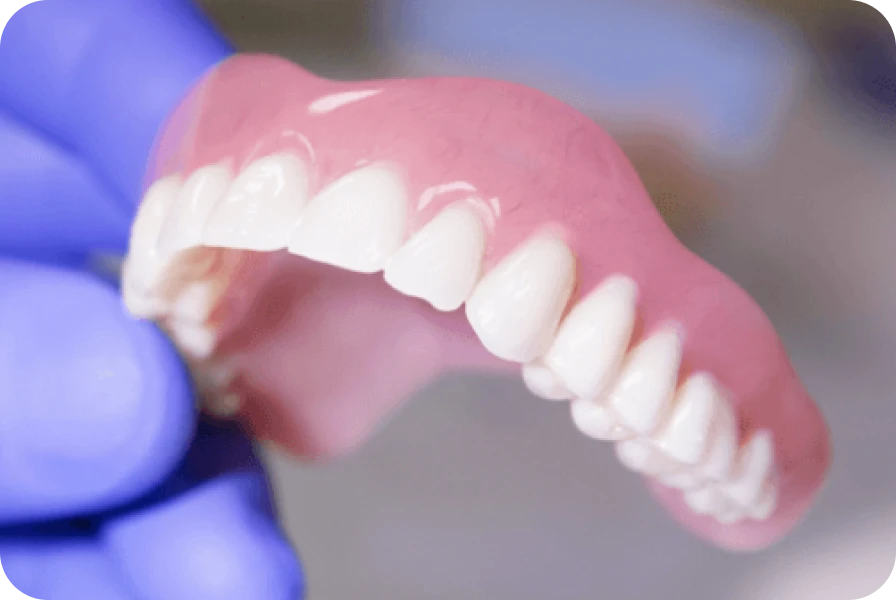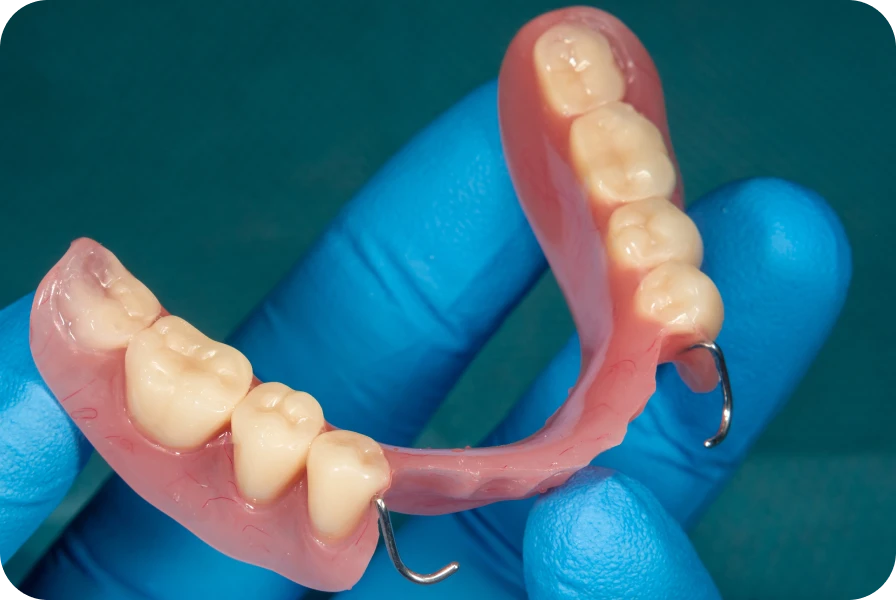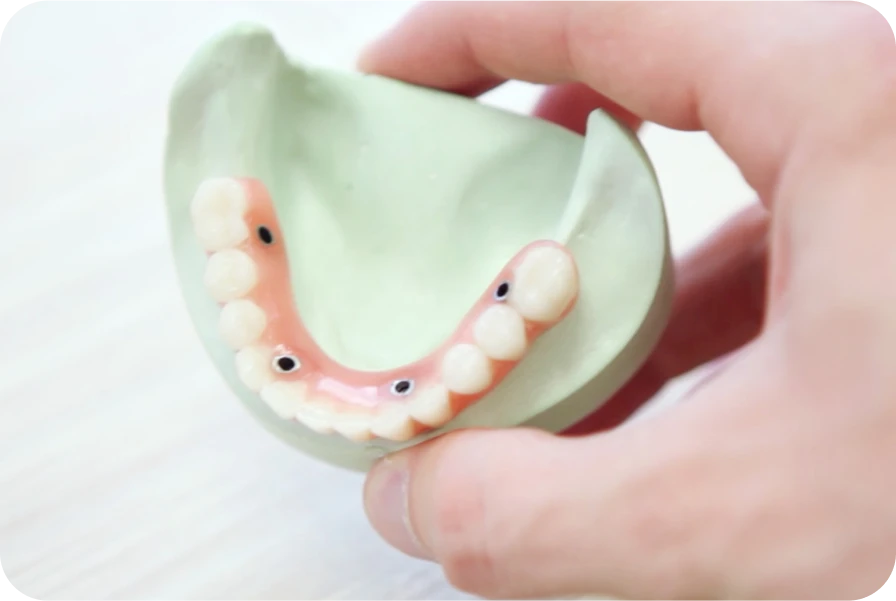Dental Prosthesis
First and foremost, it is crucial to understand the importance of a dental prosthesis. When you lose one or more teeth, a dental prosthesis can fill the empty spaces. It helps restore your ability to chew and speak properly. Without a prosthesis, your other teeth can shift and cause additional problems. Therefore, be sure to choose a solution that meets your specific needs.
The Different Types of Dental Prostheses
There are several types of dental prostheses available. Each is adapted to specific needs. It is important to choose the one that best suits your situation.
Complete Removable Dental Prosthesis

A complete removable prosthesis is used when all your teeth are missing. It replaces the entire dentition of your upper jaw, lower jaw, or both. It is designed to be removed and cleaned daily. When well-fitted, it is comfortable and offers good stability.
Removable Partial Dental Prosthesis
A removable partial prosthesis replaces one or more missing teeth. It is held in place by clasps that attach to the remaining natural teeth. This prosthesis is a simple and effective solution for filling the spaces left by lost teeth.
Fixed Dental Prosthesis
A fixed dental prosthesis is a more permanent option. Once placed, it can only be removed by a dentist. Dental bridges and crowns fall into this category. They offer better stability and increased comfort.
How to Choose the Right Dental Prosthesis?
Choosing the right dental prosthesis requires a precise evaluation of your situation. It is essential to consider several criteria.
The Condition of your Natural Teeth
Before choosing a prosthesis, evaluate the condition of your remaining teeth. If they are strong enough, a removable partial or fixed prosthesis may be a good solution. Otherwise, a complete prosthesis might be necessary.
Your Budget
The cost of dental prostheses varies depending on the type and materials used. A removable prosthesis is generally less expensive than a fixed prosthesis. Take the time to compare options and choose the one that fits your budget.
Your Comfort
Comfort is an essential criterion when choosing a dental prosthesis. You will wear it for many hours each day. Therefore, it must be well-fitted and comfortable to avoid irritation or pain.
Maintenance of your Dental Prosthesis
A dental prosthesis requires daily maintenance to remain in good condition. Here are some practical tips for properly maintaining your prosthesis.
Daily Cleaning
Clean your dental prosthesis daily. Use a soft toothbrush and non-abrasive toothpaste. You can also use cleaning products specifically designed for prostheses. Rinse it with clear water after each meal to remove food debris.
Handle with Care
Always handle your prosthesis with care. When cleaning it, do so over a towel or a sink filled with water. In case of a fall, this prevents it from breaking.

Regular Dentist Visits
Remember to consult your dentist regularly for adjustments or check-ups. A well-fitted prosthesis is essential for your comfort. The dentist can also detect any problems at an early stage.
Steps in Dental Prosthesis Fabrication
The fabrication of a dental prosthesis is a meticulous process. It unfolds in several stages, each as important as the next.
Taking Impressions
The first step involves taking precise impressions of your jaw. These impressions serve as the basis for the fabrication of your prosthesis. They ensure a perfect fit.
Modeling and Fabrication
Next, the dental technician uses the impressions to model the future prosthesis. Fabrication is done with specific materials. Every detail is carefully reproduced for an aesthetic and functional result.
Fitting and Adjustments
Once the prosthesis is fabricated, a fitting is necessary. Adjustments can be made to improve comfort and fit. This step is crucial to ensure that the prosthesis perfectly meets your needs.
The Benefits of Dental Prostheses
Dental prostheses offer several benefits. They not only restore masticatory function but also improve appearance. This allows you to smile with confidence.

Improved Mastication
A dental prosthesis allows you to chew your food properly. It distributes chewing forces evenly. This prevents digestion problems related to poor mastication.
Preservation of Appearance
By filling the empty spaces left by missing teeth, a dental prosthesis preserves the harmony of your smile. It also helps maintain your facial structure. Without a prosthesis, cheeks can sag and give an aged appearance.
Prevention of Tooth Shifting
Teeth adjacent to a missing tooth can shift over time. A dental prosthesis prevents this phenomenon. It stabilizes the alignment of your natural teeth and prevents malocclusions.
Common Problems with Dental Prostheses
It is possible to encounter certain problems with a dental prosthesis. It is important to be aware of them to resolve them quickly.
Discomfort and Irritation
Initially, you may experience some discomfort. This is entirely normal. If discomfort persists, consult your dentist to adjust the prosthesis. A poorly fitted prosthesis can cause gum irritation or pain.
Speech Problems
You may experience difficulty speaking with a new prosthesis. This can be frustrating, but with a little practice, these problems generally disappear. Practice difficult words or read aloud to train yourself.
Mastication Problems
The first few weeks with a dental prosthesis can be disorienting. You will need to relearn how to chew certain foods. Start with soft foods and gradually progress to firmer foods.
Tips for Living Well with a Dental Prosthesis
Living with a dental prosthesis requires an adaptation period. Here are some tips to help you live better with your prosthesis.
Patience and Perseverance
Be patient and persevere. It is normal to feel some discomfort initially. Over time, you will get used to your prosthesis and return to a normal life.
Learning to Chew Properly
Learn to chew your food properly with your new prosthesis. Chew slowly and on both sides of your mouth to avoid imbalances. This will help you adapt to your prosthesis more quickly.
Maintain your Prosthesis
Take care of your dental prosthesis by cleaning it daily. Regular maintenance extends its lifespan and keeps your mouth healthy.
A dental prosthesis is an effective solution for replacing missing teeth. It allows you to regain normal chewing function and an aesthetic smile. By choosing the appropriate prosthesis and maintaining it correctly, you will enjoy its benefits for many years. Remember to consult your dentist regularly for check-ups and adjustments. It is essential to live fully with your dental prosthesis and feel comfortable every day.
